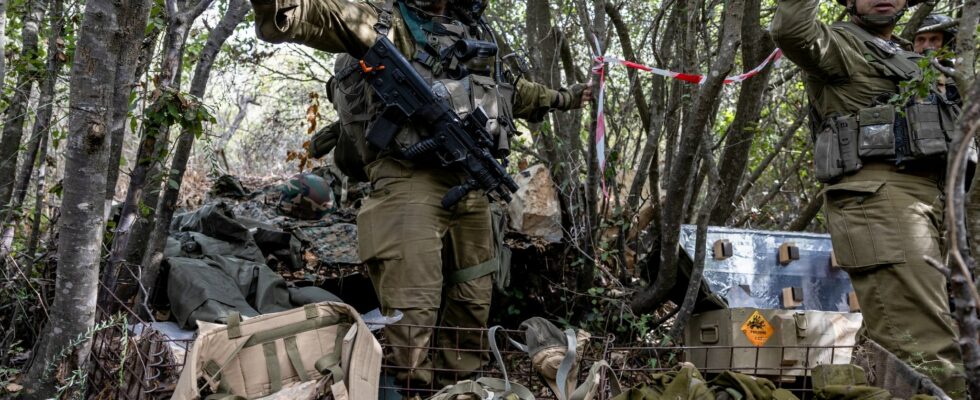Israel was convinced of this since the entry of its army into Lebanese territory. The IDF now confirms: a significant quantity of sophisticated Russian weapons are being used in the fighting in southern Lebanon, considerably strengthening Hezbollah’s military capacity.
Among them, “modern Kornet anti-tank missiles manufactured as recently as 2020 have been sent to South Lebanon in recent years from Russian stockpiles located in neighboring Syria, according to Syrian security officials and an Arab official.” , announce it Wall Street Journal this Tuesday, November 19, American daily whose reporters on site were able to have access to the weapons, some marked with Russian tracking labels.
Very modern weapons
These would therefore come from Russian military stocks in Syria, the army of which has itself been supplied for a long time by Russia, kept in warehouses under Russian control. Neither Moscow nor the Syrian government have yet confirmed this sharing of military technology. Since the start of its war against Hezbollah in 2006, the Israeli army has suspected the use of Russian weapons, but less sophisticated, mainly dating from the Soviet era. Now present on southern Lebanese territory, the IDF has discovered more advanced and numerous weapons.
According to an Israeli major, other older Russian anti-tank guided missile systems, including Metis, Konkurs, Fagots And Saggers were also reportedly found less than a kilometer inside southern Lebanon, on the surface and underground in Hezbollah bunkers.
Change in Russia’s position in the region
The discovery reinforces Israel’s fears that Russia will deepen its relations with Hezbollah, while Vladimir Putin’s regime has long maintained that it does not take sides in conflicts between Israel and its neighbors. Israel has long sought good relations with Russia, in part to avoid conflict in Syria. Israeli Prime Minister Benjamin Netanyahu also met President Putin in 2020. But the latter has also welcomed the leaders of Hamas in Moscow on numerous occasions, since the outbreak of the war in Gaza on October 7, 2023.
“Russia’s position in the region has changed since the start of the war with Ukraine in 2022, analysts say, with Moscow seeking more aggressively to challenge the United States and its allies wherever possible,” underlines the Wall Street Journal (WSJ). According to the American newspaper, Russia, for example, provided targeting data to Yemen’s Houthi rebels when they attacked Western ships in the Red Sea earlier this year. The Wagner paramilitary organization is also suspected of having supplied an anti-aircraft defense system to Hezbollah, “although it is not known whether the delivery was carried out”, specifies the WSJ.
Recently, Israeli Foreign Minister Gideon Sa’ar challenged the Kremlin on its ability to facilitate a potential peace deal that would involve the disarmament of Hezbollah, by preventing the smuggling of weapons from Syria to Lebanon. “The principle that Hezbollah will not be able to re-arm itself or obtain new weapons systems […] is vital for the success of any agreement in Lebanon,” he said. “The Russians are present in Syria. If they agree with the principle, they can contribute to achieving this goal effectively.”
